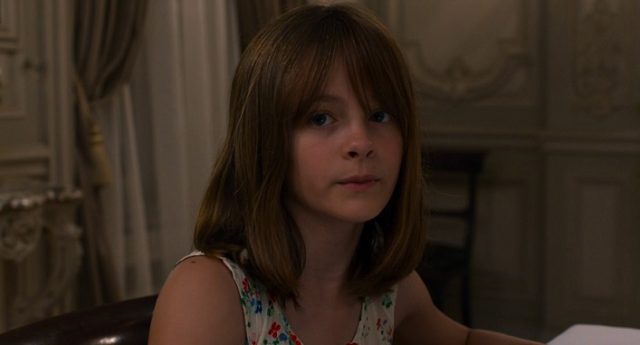Happy End: Of Course Not, by Scott Nye
After two films so respectable and well-considered he won the Palme d’Or twice, that wascally wabbit Michael Haneke is back to a whole lot of nonsense aimed to fluster and amuse, depending on how wascally you find yourself to be. I may be deemed insufficiently so. Which may be the point? The painfully-obviously-ironically-named Happy End turns the “think piece cinema” against an audience accustomed to being catered to, which should be rewarding, if only it wasn’t as shallow as the rest of them. It’s structurally playful, but only to obscure the most obvious of narrative themes. I long for cinema this challenging; I weep when it reveals so little.
Tolstoy famously wrote, “every unhappy family is unhappy in its own way.” The Laurent family certainly has a way about them. Anne (Isabelle Huppert) and her screw-up son Pierre (Franz Rogowski) are overseeing a construction site that has fallen to ruin. Anne’s father, Georges (Jean-Louis Trintignant) suffers from dementia, is forever on the verge of suicide. Georges’ other child, Thomas (Mathieu Kassovitz), is cheating on his considerably-more-attractive wife Anaïs (Laura Verlinden), a lifestyle complicated by his daughter, Eve (Fantine Harduin), falling into his care. And why is Dad now in charge of little Eve? Well, she went off and poisoned her mother, leaving her in a coma that everyone assumes to be a suicide attempt. As one does.
This is all stitched together in moments, a storytelling device probably more familiar to our readers from this summer’s Twin Peaks revival. We’re presented with a series of disassociated events and left to figure out how they all figure into one another. The film starts with a series of Eve’s iPhone videos, her accompanying text messages setting up the entire dramatic fulcrum of the film. From there we get rather everyday activities, until that construction site comes crumbling down and everything else along with it.
The Laurent family is very rich, and their very-richness insulates them from a basic attachment to anyone else. This is often played for comedic effect – Thomas’s Facebook chats with his lover are the essence of cringe humor, as is Pierre’s see-it-to-believe-it karaoke performance of Sia’s “Chandelier” – but is most effective in sensing how thoroughly it has ground down Eve’s capacity for growth. In a larger sense this points to how wealth stunts a child’s growth, and prevents natural empathy from setting in. At quite a few turns, Eve reaches out in an attempt to earnestly grapple with what she’s done and the state of her life, but finds only uncaring adults who can’t be bothered to treat her as much more than an eventual equal or rival. Whatever is truly good about the film is buried in her, and especially Harduin’s sensitive performance. For all the film’s shortcomings, this path leads to one hell of a final shot.
But what, ultimately, does it matter. The pain of intergenerational conflict is not exactly unfamiliar territory for Haneke, and other than incorporating new technologies and the horrific refugee crisis, there’s little here that builds on – let alone surpasses – his exploration of same in The Piano Teacher, Caché, or The White Ribbon. We’re left only with something judgmental, condescending, simplistic, and pointlessly cruel; all the common complains about him finally came true.






























Some of us enjoyed Happy End far more than you did, Scott. “Judgmental, condescending, simplistic, and pointlessly cruel” might be applied to nearly any satiric film depicting a fractured family whose facade of wealth and success is unsustainable due to self-inflicted wounds, and the difficulty of finding and keeping love.
All of the characters were to some small or large extent sympathetic despite their flaws (OK, not Pierre), even the most creepily menacing child since The Bad Seed and its imitators. I especially enjoyed Haneke’s denying the audience a complete sense of understanding, achieved by the juxtaposition of dissociated events as you mention, and by our inability to always see and hear everything going on (as when passing traffic drowns out Georges’ conversation with immigrants). Like the characters, but less so, the audience is unable to be sure about everything. That seems rather refreshingly the opposite of so many American films, with dialog on the nose.